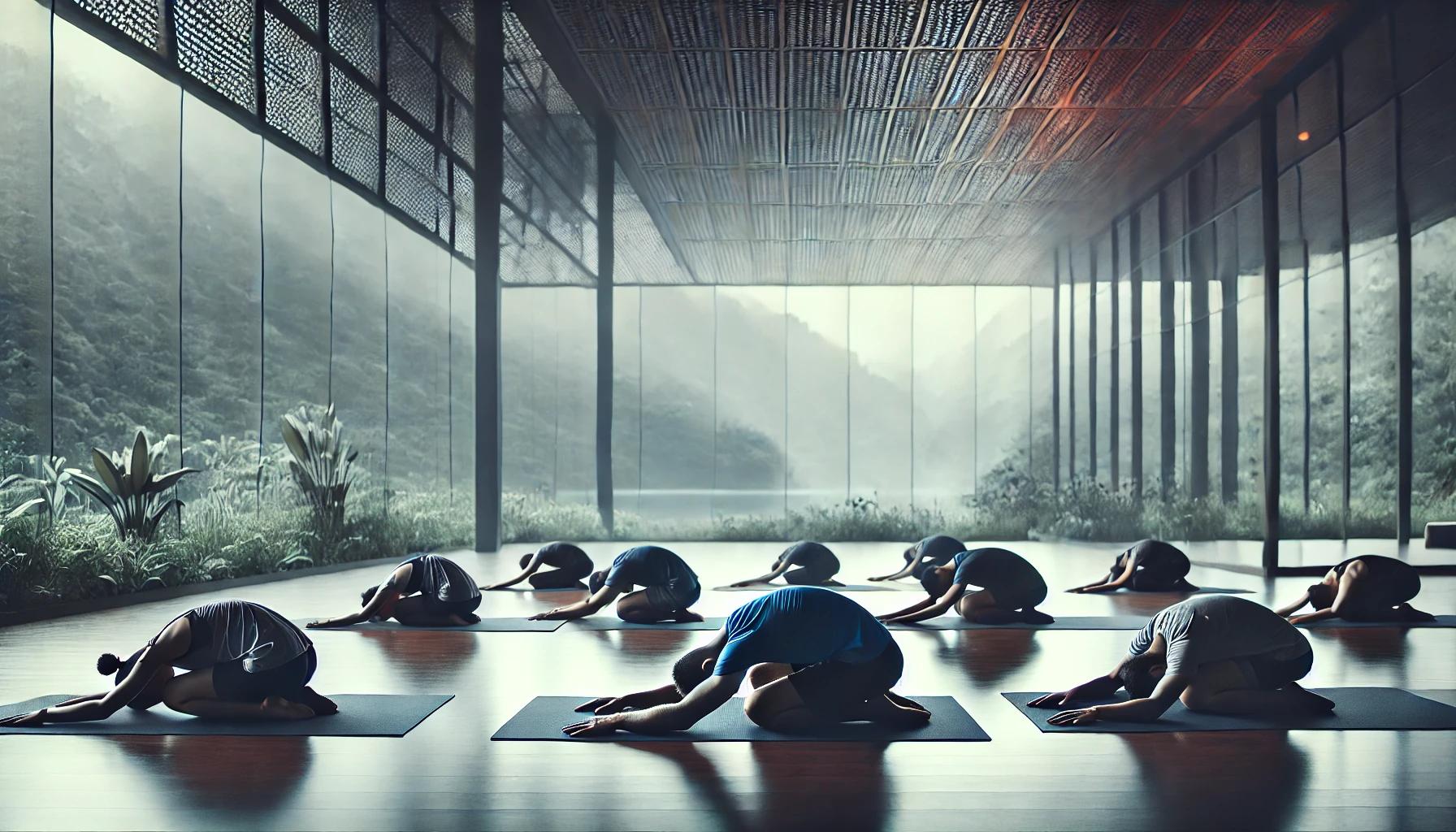For athletes, recovery is a crucial component of any training regimen. Proper recovery allows muscles to repair, reduces the risk of injury, and enhances overall performance. Yoga, with its emphasis on gentle stretching, relaxation, and mindfulness, is an excellent tool for post-workout recovery. Incorporating yoga into your routine can help alleviate muscle soreness, improve flexibility, and promote a sense of calm and relaxation. Here, we explore some of the best yoga poses for post-workout recovery and how they benefit athletes.
1. Child’s Pose (Balasana)
Benefits:
- Gently stretches the lower back, hips, and thighs
- Promotes relaxation and stress relief
- Calms the mind and body
How to Perform: Kneel on the floor, sit back on your heels, and separate your knees about hip-width apart. Lean forward, extending your arms in front of you or alongside your body, and rest your forehead on the mat. Hold for 1-3 minutes, breathing deeply and allowing your body to relax.
2. Downward-Facing Dog (Adho Mukha Svanasana)
Benefits:
- Stretches the hamstrings, calves, and shoulders
- Relieves tension and stiffness in the entire body
- Improves circulation and energizes the body
How to Perform: Start on your hands and knees. Spread your fingers wide and press firmly into the mat. Lift your hips towards the ceiling, forming an inverted V-shape with your body. Keep your heels slightly off the ground, or press them down if your flexibility allows. Hold for 1-3 minutes, focusing on deep, even breaths.
3. Reclining Pigeon Pose (Supta Kapotasana)
Benefits:
- Deeply stretches the hips, glutes, and lower back
- Releases tension and tightness in the hip area
- Promotes relaxation and recovery
How to Perform: Lie on your back with your knees bent and feet flat on the floor. Cross your right ankle over your left thigh, just above the knee. Thread your right hand through the space between your legs and interlace your fingers behind your left thigh. Gently pull your left thigh towards your chest, feeling the stretch in your right hip. Hold for 1-3 minutes, then switch sides.
4. Legs-Up-the-Wall Pose (Viparita Karani)
Benefits:
- Relieves tired legs and feet
- Reduces swelling and improves circulation
- Promotes relaxation and recovery
How to Perform: Sit close to a wall and lie back, extending your legs up the wall. Your body should form an L-shape, with your legs resting comfortably against the wall. Relax your arms by your sides and hold the pose for 5-10 minutes, focusing on slow, deep breaths.
5. Reclining Bound Angle Pose (Supta Baddha Konasana)
Benefits:
- Stretches the inner thighs, groin, and hips
- Relieves tension in the lower back and hips
- Promotes deep relaxation and recovery
How to Perform: Lie on your back with your knees bent and feet together. Allow your knees to fall open to the sides, bringing the soles of your feet together. You can place pillows or blocks under your knees for support. Rest your arms by your sides and hold the pose for 5-10 minutes, breathing deeply.
6. Seated Forward Bend (Paschimottanasana)
Benefits:
- Stretches the hamstrings, calves, and lower back
- Relieves tension and promotes flexibility
- Calms the mind and reduces stress
How to Perform: Sit on the floor with your legs extended straight in front of you. Inhale and lengthen your spine, then exhale and fold forward, reaching for your feet or shins. Keep your spine long and avoid rounding your back. Hold for 1-3 minutes, focusing on your breath and allowing your body to relax.
7. Corpse Pose (Savasana)
Benefits:
- Promotes complete relaxation and recovery
- Calms the mind and reduces stress
- Enhances overall well-being
How to Perform: Lie flat on your back with your legs extended and arms resting by your sides, palms facing up. Close your eyes and take slow, deep breaths, allowing your entire body to relax. Hold the pose for 5-10 minutes, focusing on releasing any remaining tension.
Conclusion
Incorporating yoga into your post-workout routine can significantly enhance your recovery process. These poses help alleviate muscle soreness, improve flexibility, and promote a sense of calm and relaxation. By dedicating a few minutes to yoga after your workouts, you can support your body’s recovery, reduce the risk of injury, and improve your overall athletic performance. Whether you are a professional athlete or a fitness enthusiast, yoga offers valuable tools to help you recover and perform at your best.
